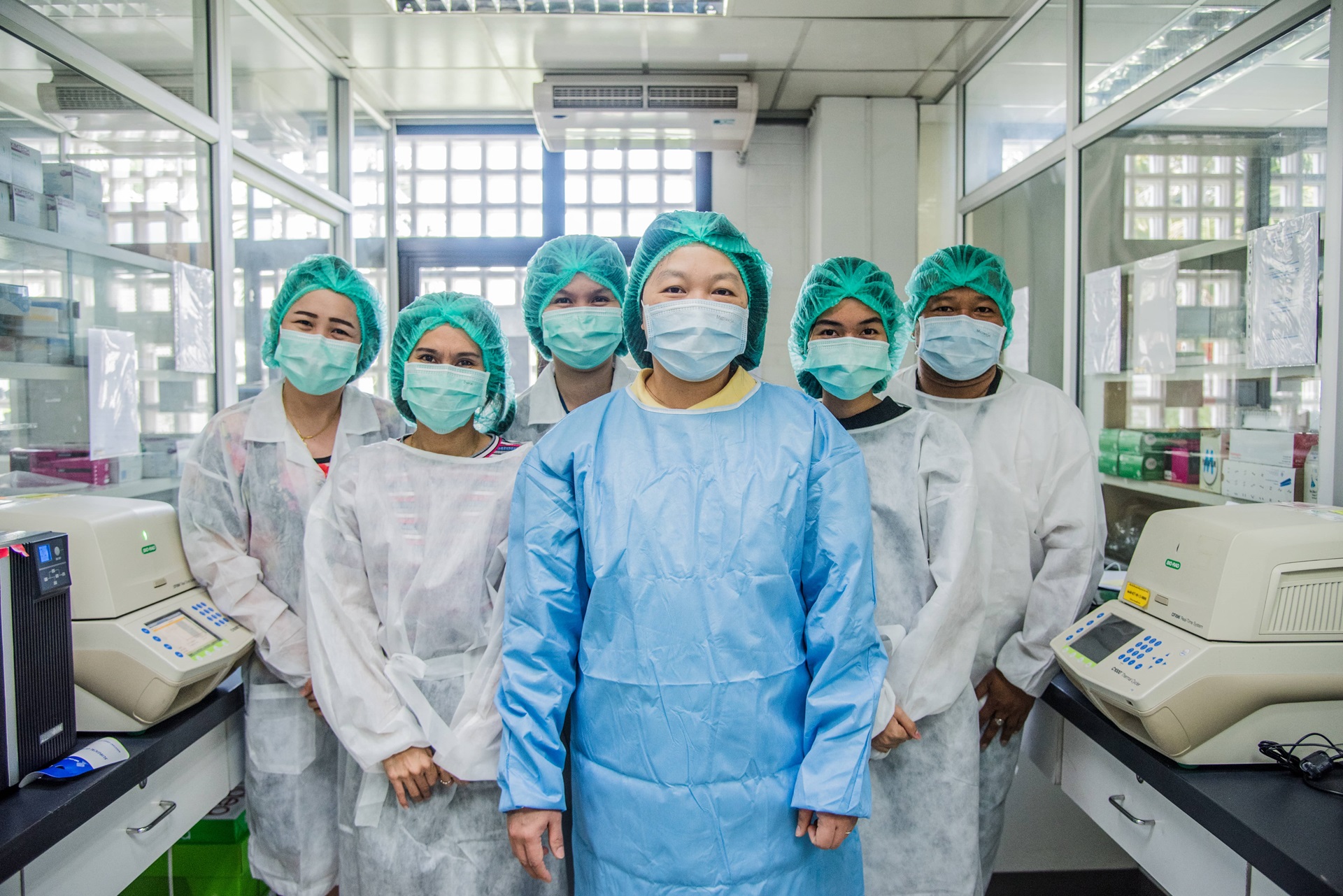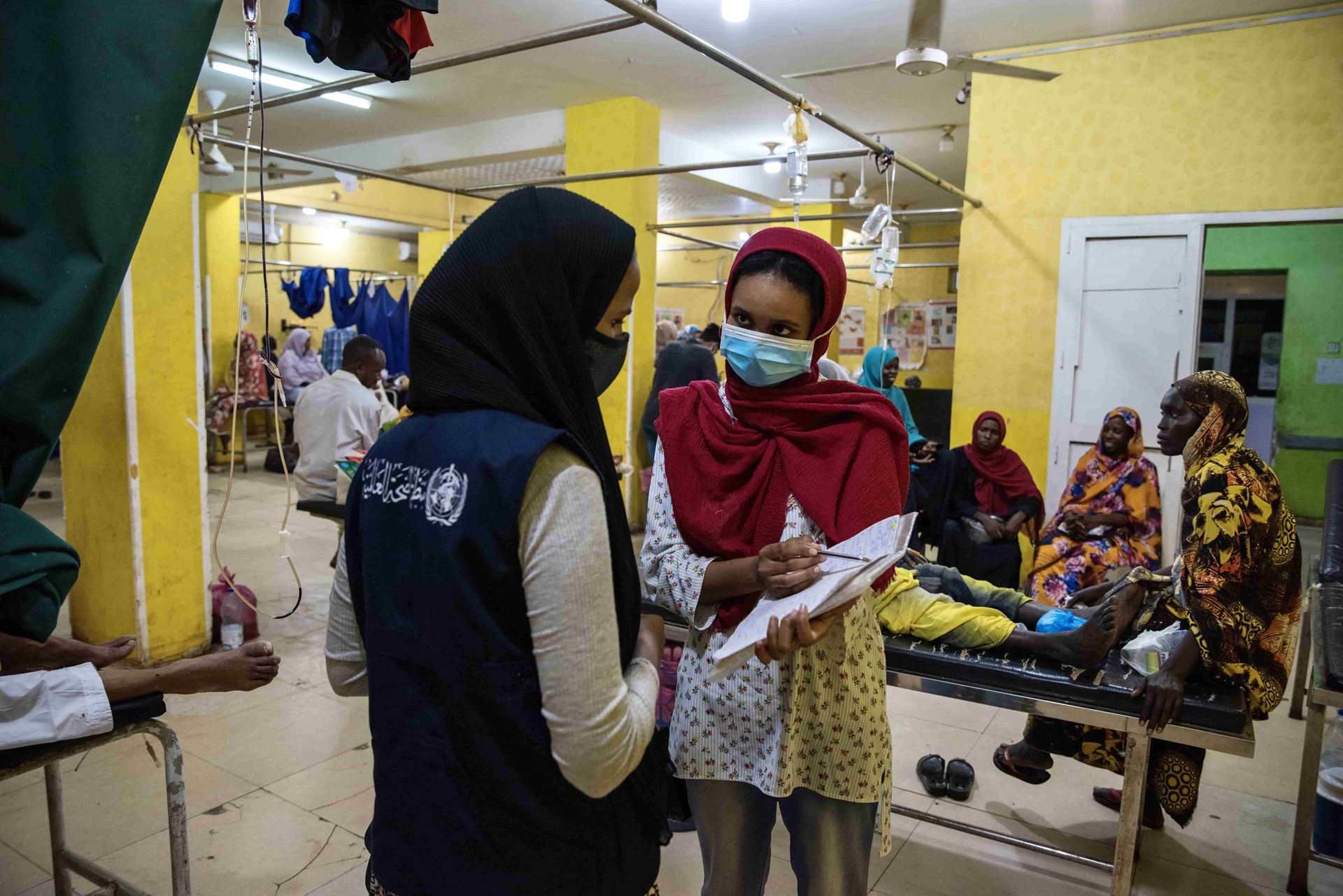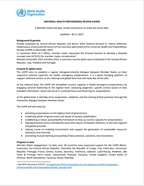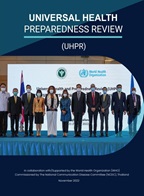- Home/
- Operations/
- Universal Health & Preparedness Review
Universal Health & Preparedness Review
The Universal Health and Preparedness Review (UHPR) is a voluntary, transparent, Member State-led peer review mechanism, that aims to establish a regular intergovernmental dialogue between Member States on their respective national capacities for health emergency preparedness. It is a game-changing platform to support collective actions at the national and global level that will make the world safer, based on the principles of equal treatment and mutual accountability.
About the UHPR

The COVID-19 pandemic has shown that no country was fully prepared to deal with a pandemic of such scale, speed, severity and impact. A new mechanism, the Universal Health and Preparedness Review (UHPR), has been proposed as means to increase accountability and transparency among Member States in capacity building for better health emergency preparedness. The peer-review nature of the envisioned UHPR ensures that key issues identified will be acted upon at the highest political levels of government and that relevant recommendations will be followed up upon on a regular basis.
In November 2020, the Director-General announced the Universal Health and Preparedness Review. In resolution WHA74.7 (2021), Member States requested the Director-General to develop a detailed concept note for the consideration of Member States as they determine the next steps on the voluntary pilot phase of the Universal Health and Preparedness Review mechanism, based on the principles of transparency and inclusiveness, and on how it builds on existing International Health Regulations (2005) monitoring and evaluation framework components. As part of resolution WHA75/21, the UHPR concept note was presented to the health assembly and noted by Member States.
Rationale
Under the International Health Regulations (IHR) (2005), all 196 States Parties, including all Member States, have the responsibility to build and maintain effective capacities and systems for the prevention and detection of, preparedness for and response to public health emergencies of international concern and to abide by relevant international rules.
Lessons from the COVID-19 pandemic and other severe epidemics signaled the need for broad-based, whole-of-government and whole-of-society approaches, involving relevant stakeholders beyond the health sector. These approaches require collaboration, mutual accountability and concerted actions between national leaders, policy-makers, intergovernmental organizations and global initiatives for the radical change needed to be better prepared.

Added value of the UHPR process
At the national level, the UHPR will strengthen country capacity in health emergency preparedness by engaging national leadership at the highest level, catalyzing pragmatic, specific actions based on best available information, which will result in sustained focus and financing for preparedness. It will also serve to update a comprehensive prioritized National Action Plan for Health Security, around which all partners and stakeholders align.
At the global level, it will help drive cooperation, solidarity, and the sharing of best practices through the interactive dialogue between Member States.
The UHPR aims to result in:
- Prioritized improvements in health security, with leadership and commitment from the head of state, mobilizing a whole-of-government and whole-of-society approach beyond the health sector.
- Accountability to improve access to health services to prevent, detect, and respond to emergencies, including primary health care.
- Better compliance with commitments made under the International Health Regulations and related WHA resolutions in emergency preparedness, enabling a linkage to national and global funding in order to accelerate improved country capacity for preparedness.
- Prioritized actions that require immediate attention, in line with regional and global priorities.
- Mutual learning and pooling of best practices, solutions, and innovations.
UHPR Pilots

The UHPR is being piloted in two phases: (1) a national review phase and (2) a global peer review phase. Learnings from the voluntary pilots are being systematically gathered to continuously update relevant guidance for Member States.
UHPR National Review Phase
Five voluntary country pilots of the UHPR national review phase were completed between December 2021 and May 2023 in the Central African Republic, Iraq, Portugal, Thailand and Sierra Leone.
Member States who would like to engage in the UHPR process or arrange to participate in a country pilot can inform the WHO Country Office, WHO Regional Office or WHO Headquarters.
UHPR Global Peer Review Phase
The UHPR Secretariat is currently consulting with Member States on the draft working methods for the pilot of the UHPR global peer review phase.
Member States and stakeholders, are invited to contact WHO for further information on the ongoing consultation process.
Email: [email protected]
Publications

10 proposals to build a safer world together – Strengthening the Global Architecture for Health Emergency...
At the seventy-fifth World Health Assembly in May 2022, the Director General of WHO set out ten proposals to strengthen the global architecture...
Documents


Related health topics
Contact
More




